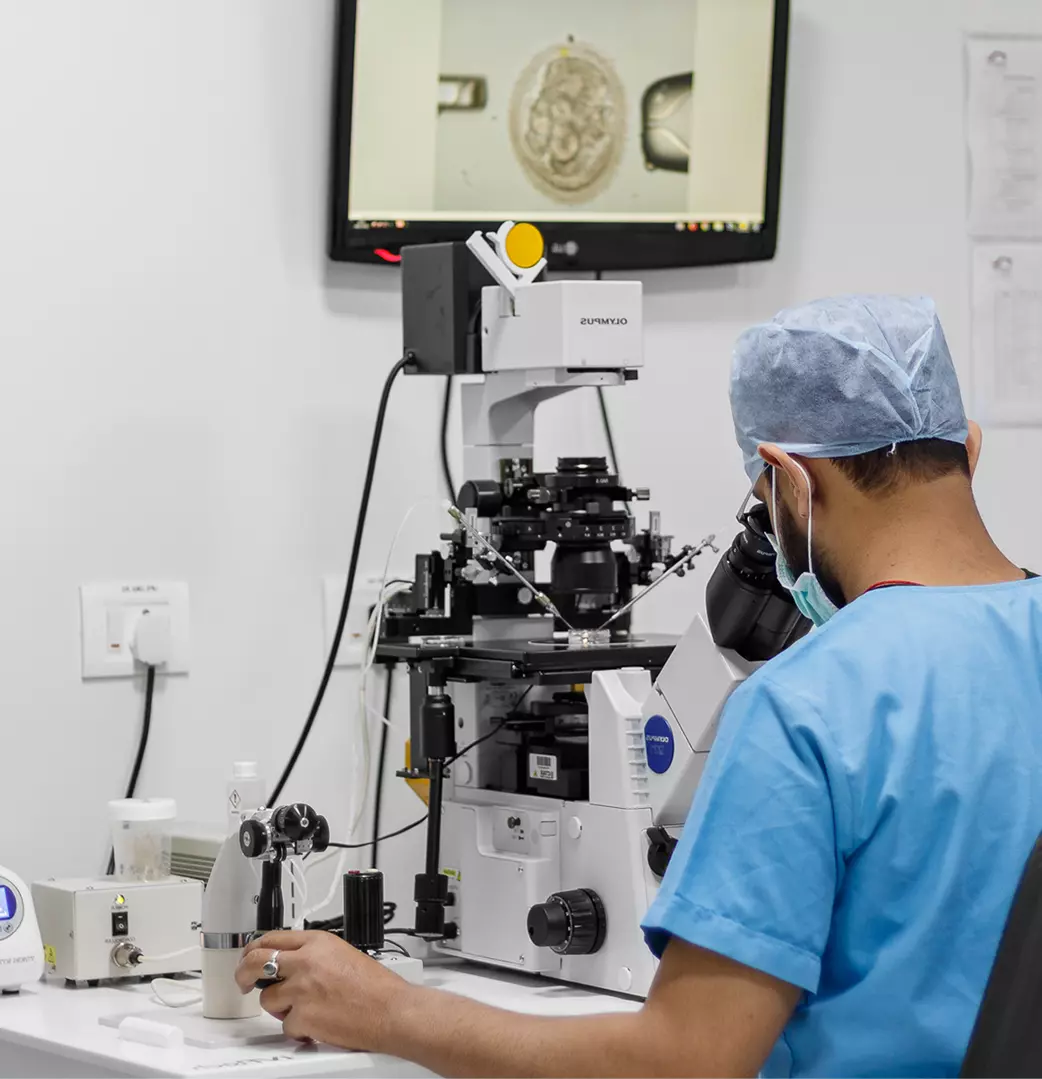

Treatments and Procedures
- IVF – Invitro Fertilization
In this the eggs and sperms are collected, and the embryo is grown in a lab that simulates uterine condition.
- ICSI – Intracytoplasmic Sperm Injection
In this single sperm is injected into the egg. This is advised for men with fertility issues.
- IUI – Intrauterine Insemination
IUI is a basic fertility treatment and is less invasive process wherein a sample of good quality sperms are transferred to the uterus.
To know about your treatment options

Frequently Asked Questions
IVF was originally developed for women with blocked tubes or missing fallopian tubes and it is still the procedure of choice for these situations. It is also used when other conditions are present, including endometriosis, male factor infertility and unexplained infertility in which no medical cause for infertility can be found. Our experts will review your history and help to guide you to the treatment and diagnostic procedures that are most appropriate for you.
1/3rd of the infertility issues are contributed by the male partner. Male factors also influence increased rate of miscarriages. Most common causes of male infertility are as follows.
- Abnormal sperm count or low sperm motility
- Chronic ailments such as cancer
- Environmental factors: Exposure to radioactive chemicals
- Lifestyle factors: Being overweight, smoking, drinking alcohol
- Age
Infertility is gender neutral. It affects the male and the female population. 1/3rd of the infertility issues are contributed by the female partner. In the world 50-80 million suffer from infertility. Most common causes of female infertility are as follows.
- Age
- Endometriosis
- Hormonal issues leading to ovulation problems
- Tubal blockage
- Fibroids
- Lifestyle factors: Being overweight, smoking, drinking alcohol, unhealthy diet
- Unexplained infertility
Women are born with approximately 2 million eggs in their ovaries. Before a girl reaches puberty, about 11,000 eggs die every month. Thus, in her teenage years, a woman has only about 300,000 to 400,000 eggs available. From this point onwards, about 1000 eggs are utilised every month. This has nothing to do with any form of birth control, pregnancy, hormone production, health, lifestyle or nutritional supplements. Eventually, a woman reaches menopause when she has no viable eggs left.
PCOS (Polycystic Ovarian Syndrome) refers to a condition caused by hormonal imbalances. Women suffering from PCOS produce higher than normal amounts of male hormones. This affects ovulation and can result in irregular periods. In some cases, women suffering from PCOS may have irregular periods. This, in turn, can make it harder for these women to conceive. In fact, PCOS is one of the most common causes of female infertility.
 Infertility Counselling
Infertility Counselling Female Infertility Treatment
Female Infertility Treatment Andrology Treatment
Andrology Treatment Fertility Enhancing Surgeries - Female
Fertility Enhancing Surgeries - Female Fertility Enhancing Surgeries - Male
Fertility Enhancing Surgeries - Male Endoscopy Treatment
Endoscopy Treatment IUI Treatment
IUI Treatment IVF Treatment
IVF Treatment ICSI Treatment
ICSI Treatment Advanced IVF Solutions
Advanced IVF Solutions Embryology
Embryology Vitrification Egg, Embryo, Sperm Freezing
Vitrification Egg, Embryo, Sperm Freezing Preimplantation Genetic Testing (PGT)
Preimplantation Genetic Testing (PGT) Donation Program Embryo / Egg / Sperm
Donation Program Embryo / Egg / Sperm Self-cycleTM IVF
Self-cycleTM IVF

 Self-cycleTM IVF
Self-cycleTM IVF 08049388781
08049388781 Book an appointment
Book an appointment


